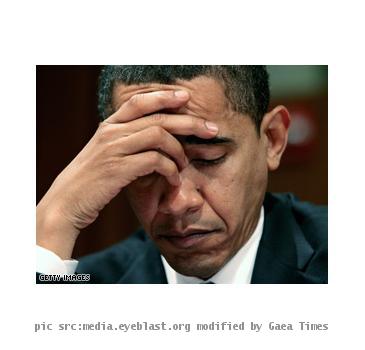Chicago’s longtime mayor, Richard Daley, says he won’t run for re-election
By Tammy Webber, APTuesday, September 7, 2010
Chicago Mayor Daley won’t run for re-election
CHICAGO — Chicago Mayor Richard M. Daley, who has presided over the nation’s third-largest city for 21 years, like his father did before him, announced Tuesday that he will not run for a seventh term, saying the time “just feels right.”
Daley, 68, said he had been thinking about not running for several months and became comfortable with his decision over the last several weeks.
“It just feels right,” Daley said at a news conference, his smiling wife Maggie standing by his side. “I’ve always believed that every person, especially public officials, must understand when it’s time to move on. For me, that time is now.”
He called the announcement “a personal decision, no more, no less” and said he and his family now begin a “new phase of our lives.”
The announcement was made with little warning, but was not a surprise to everyone.
Daley had refused to say whether he would run again, fueling speculation that he might not, and his wife has been battling cancer.
“It’s a surprise because there’s been a Daley in the political system for so long,” said Alan Gitelson, a Loyola University of Chicago political science professor. “There’s always been this presence. It’s been really part and parcel of the identity of the city to have a Daley in the mayor’s office.”
Daley was first elected mayor in 1989, following in the footsteps of his father, Richard J. Daley, who died of a heart attack in 1976 at age 74 during his 21st year in office.
Cook County Clerk David Orr said he did not think anyone would have seriously challenged Daley if he had run for re-election, but Tuesday’s announcement means “the whole political landscape changes enormously.”
“All of a sudden now many of the political people will be focused on the mayor’s seat. February is so close,” Orr told WBBM radio in Chicago. “There’s going to be a lot of scheming and planning going on.”
Daley’s announcement leaves an open door for White House chief of staff Rahm Emanuel, who said in April during a television interview that “it’s no secret” he’d like to run for mayor of Chicago someday.
At the time, Emanuel called Daley “a dear friend” and said he’s done “a fabulous job” as mayor. He said on Charlie Rose’s PBS talk show that he hopes Daley will seek re-election and said he’d work for Daley if he runs again.
The 50-year-old Emanuel is a one-time Daley adviser and a Chicago native. He was an Illinois congressman until he resigned to take his current White House post.
A few days later, Daley said the two are friends but didn’t endorse Emanuel as his heir apparent. “I think there are many people out there who would be great mayors,” Daley said.
Others whose names have surfaced as possible candidates are Democratic U.S. Representatives Jesse Jackson Jr. and Luis Gutierrez, and Chicago Alderman Bob Fioretti. Jackson is expected win reelection to his congressional seat this fall, but has seen his reputation tarnished after revelations that supporters allegedly offered to raise money for former Gov. Rod Blagojevich in exchange for an appointment to President Barack Obama’s former Senate seat. Jackson was not charged in the case and denies wrongdoing.
During his tenure, Daley presided over some of the most dramatic changes in Chicago history.
He assumed command of the floundering school system in 1995 and replaced entrenched bureaucrats with tough, results-oriented administrators. Homework became mandatory, and the “social promotion” of underperforming students was halted. Test scores climbed steadily.
Daley also was the catalyst for a citywide facelift. West Side slums were cleared, new green space was created, a theater district came to life in the north Loop, and Navy Pier became a colorful playground complete with boat rides and a giant Ferris wheel.
Critics have grumbled that in some ways Daley’s Chicago was run much as it had been under his father, who was the boss of Chicago’s Democratic machine for two decades. They pointed to City Hall scandals and lucrative contracts for the mayor’s friends as well as chronic corruption and police brutality cases.
Daley’s constituents came to know him as an intense, nervous figure who was never fully comfortable on the speaker’s platform. As with his father, the current mayor’s rhetoric is at times tangled.
He nevertheless remained popular, winning elections by overwhelming margins.
The fourth of seven children and the oldest son of Richard J. and Eleanor “Sis” Daley, Richard M. Daley grew up in the 11th Ward near the former Comiskey Park, an area of blue-collar bungalows and two-flats, home to many city patronage jobholders as well as judges, prosecutors and police officers.
Politics was a part of family life. A brother, William Daley, would become U.S. commerce secretary under President Clinton and another, John Daley, is a Cook County commissioner.
In 1972, Richard M. Daley was elected to the state Senate. In 1980, he was elected Cook County state’s attorney.
In 1983, Daley finished third in a mayoral primary marred by racial antagonisms. U.S. Rep. Harold Washington defeated Daley and Mayor Jane M. Byrne and became the city’s first black mayor. In 1987, Washington died of a heart attack, and Daley won a 1989 special mayoral election.
Associated Press writers Sophia Tareen and Caryn Rousseau contributed to this report.
Tags: Barack Obama, Chicago, District Of Columbia, Illinois, Local Elections, Mayor daley, Municipal Governments, North America, United States

